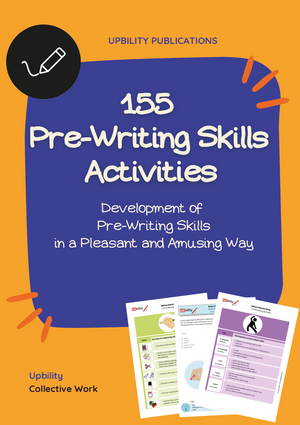
Back to School: Making it Easier for Students With Learning Disabilities
Back-to-school tips for parents:
Being back to school can be challenging for all children, but it is usually particularly difficult for students with learning disabilities. The summer provides a break from school and learning related issues- social, emotional, behavioral, suspensions, constant calls, etc. However, with the start of a new school year, there is always the possibility to learn how to deal with all those school/learning related issues.
If academic problems are popping up again after returning to school from a summer break and you are concerned that your child is experiencing a learning disability or difficulty, you probably want to help but aren’t really sure where to start. Your first step is to gather some information so that you can begin to see the entire picture. Lack of school success doesn’t automatically indicate the presence of a learning disability. Before jumping to any conclusions, take some time out and talk with the children. In a friendly and matter-of-fact way explain that you know they are having problems with a few things in school and that you want to help. Ask if they know what is difficult for them. Also, find out what they like the most about school and what classes and activities they look forward to. How do they feel when they are about to take a test? Do they have trouble understanding what the teacher wants them to do? Are they losing some of their assignments?
It’s important that parents take extra steps to ensure the best start to a new academic year, so here are a few things you may think about and discuss with your child:
- Help your child by helping yourself. Perhaps most importantly, help yourself first. Put the oxygen mask on your face before your child’s. Become informed, connected, and empowered.
- Get excited about the new school year. Your child will follow your lead. Express your excitement about the new school year and point out the exciting opportunities and activities your child has to look forward to. Ask your child what most excites him/her, and make shopping for school supplies fun.
- Take time to talk with your child. The weeks leading up to school is a great time to have conversations with your children about their strengths. Then you can move the conversation to the areas that are known to be difficult for your child. “How did we manage that last year? What did we do that really helped?” It’s important to frame the conversation in terms of solutions and strategies that seemed to work.
Many kids with learning disabilities struggle at some point with low self-esteem. The best antidote for those types of feelings is to alter the situation so the child can feel success. Through open dialogue, you can help your child recognize his/ her strengths and the ways in which he/ she has been successful. A series of conversations before school begins can be particularly beneficial.
- Talk about the upcoming school year. Encourage your child to get involved in sports, band, clubs and other after school activities. Help your child to pick electives and exploratory classes that best fit their interests and strengths. Discuss expectations about homework and study times. You can also help your child develop goals and a plain of action to accomplish those goals.
- Make contact with your child’s teacher(s). It is important to connect with your child’s teacher before school begins. You should let the teacher know about your child’s difficulties, but you should also share positive anecdotes about your child.
Assure your students’ teachers that you look forward to working with them and that you see your relationship with them as partnership. Be sure to leave your phone number and email and ask for their phone number and email number as well.
- Establish a relationship with the school’s support team. It’s always a good idea to touch base with everyone on your child’s team. Depending on the age of your child and his/her specific needs, you may want to reach out to the school guidance counselor, the speech pathologist, or the special education teacher.
The responsibility of arranging a meeting with the support team is most often left to the parents. If you want to ensure that everyone on the team is aware of your child’s strengths and weaknesses, give the school a call and set up a meeting.
Speak with the teacher and school counselor to find out what help is available through the school district. Some schools have after-school tutoring programs or peer tutoring that involves older students helping younger students under the guidance of a teacher. Ask about your school’s efforts to help students who are academically behind through their Response to Intervention program. Keep asking questions at the school and if you are not receiving any help then call the school district office or your state board of education office in order to find out what programs are available and how your child can qualify.
- Create an appropriate space for homework. This is particularly important for the children with learning disabilities. A fair number of children with learning disabilities have difficulty with organization, and the space and supplies for homework can make all the difference. It might even be something as simple as giving your child a pencil sharpener or his own colored pencils, color coding children’s folders and supplies for each subject or a red folder for math, blue for science, etc. Take your children shopping with you and let them pick out their own supplies. Likewise, involve them in planning the physical space for homework. Maybe they think it should be in the kitchen because they will need your help. If so, you could keep a basket of school supplies handy in the kitchen.
- Take a look at your child’s environment outside of the classroom. Are the children following a schedule that includes plenty of rest at night, outdoor exercise and fresh air every day, and time to do homework away from TV or video games? Are their bedroom or your home a chaotic place that invites disorganization and misplaced homework, permission slips, school supplies, and gym shoes? It is important to keep in mind that a well-organized environment makes it is easier for children with learning disabilities to improve their academic performance.
Back-to-school tips for teachers:
The opening of the school year also gives the teachers of students with learning disabilities the chance to use new strategies to get the year off to the best possible start in their classrooms. Experts highlight the importance of relating to and understanding the children. Children with learning disabilities might think of school as a place of failure and frustration, and the first days in a new classroom might cause them anxiety. They know, through bitter experience, that their academic skills and social competence will be sorely tested, and often they will not be equal to the challenge. As teachers, you must understand and accommodate for the significant anxiety that your students face as they enter the school year.
Below are some strategies, techniques, procedures, and inspirations that may help in getting your school year off to a constructive and supportive start:
- The first day of school sets the tone for the year. "Getting Acquainted" activities are great and appropriate. But the majority of the time during the first day should be spent on academically-oriented school work. If day one is a play day, the children might get the impression that this is how the rest of the school year will be like.
- Welcome your students. Take a moment to send a “new school year” postcard to every student in your class. They will probably be magnetized to refrigerators all over the neighborhood, and the children will feel comfortable and welcomed from day one.
- Review each child's cumulative folder before school begins. Note each student's special interest and talents; not merely their test scores. Some teachers believe that you should not review files before the year begins because you will develop "preconceived notions" about the child, but wouldn't you want your doctor to review your medical history prior to treatment? However, give every kid a chance to "wipe the slate clean" and start each school year off fresh.
- Make contact with your students’ parents. Send a note home during the first week to let parents know when you are available for conferences; encourage them to inform you about the difficulties their child faces or his/ her anxieties and worries about the school year that is about to start.
- Touch base with related service providers. It's important to contact the related service providers — occupational therapists, physical therapists, speech/language therapists, or counselors — in your school as soon as possible to establish a schedule of times for your students who need these services. The earlier you touch base, the more likely you'll be able to find times that work for everyone.
- Keep everyone informed. All additional school staff such as assistants and specialists who will be working with your students need to be aware of their needs and their IEPs before school starts. Organize a way to keep track of who has read through the IEPs, and be sure to update your colleagues if the IEPs change during the school year.
- Make the students feel welcomed and valued in your classroom. Many kids with learning disabilities feel that school is a depersonalizing and irrelevant institution. It is a sad commentary that kids' self-esteem often increases markedly immediately after they drop out of school.
- Schedule your day. Kids feel very comforted and secure when you give them an idea of what a "typical day" will be like. Always post the day's agenda on the wall before each class, and remember that kids with learning problems generally do not like surprises. They take great comfort in the structure that you provide.
- Post your short, simple classroom rules. All classroom rules should be stated positively ("Respect each other"), not negatively ("No Swearing"). Tell them what you want them to do, not what you don't want them to do. Some samples:
- Respect material, equipment, and each other.
- Raise your hand for permission to speak or leave your seat.
- Use "indoor voice" when speaking in class.
- Be on time.
- One person talks at a time.
- Organize all that paperwork. Special educators handle lots of paperwork and documentation throughout the year. Try to set up two separate folders or binders for each child on your case load: one for keeping track of student work and assessment data and the other for keeping track of all other special education documentation.
- Start and stay positive. As a special educator, you'll have lots of responsibilities this year, and it may seem overwhelming at times. If your focus is on the needs of your students and their success, you'll stay motivated and find ways to make everything happen. Being positive, flexible, and organized from the start will help you and your students have a successful year.
Upbility Team
Suggested Articles by Upbility
- ADHD and Substance Abuse in Teenagers A Research
- 5 Tips For A Happy Summer For Kids With ADHD
- The Impacts Of Distance Learning A Review
Suggested Books on ADHD:
- Helping Your Child Succeed: Fostering a Love of Learning in Your Child
- Visual Perception Skills for Children with Dyslexia | PART 1: Visual Closure
- PROCESSING SPEED | Improving Performance Strategies
https://www.education.com/magazine/article/school-child-learning-disabilities/
http://www.ldonline.org/lavoie/Strategies_to_Start_Off_a_New_School_Year
http://theldcoach.com/gearing-up-for-a-new-school-year/
http://mintonlearning.com/2017/03/29/a-new-school-year-learning-difficulties-part-1/
http://www.ldonline.org/article/38311/


